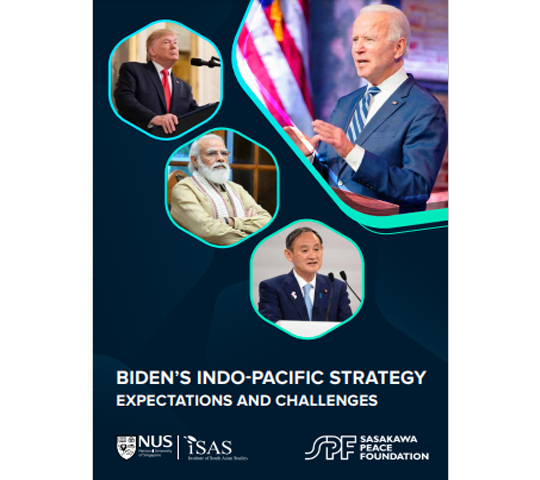Biden’s Indo-Pacific Strategy: Expectations and Challenges
Yogesh Joshi, Archana Atmakuri
18 February 2021Over the last four years, the Donald Trump administration caused disruptions to the traditional approach of the United States (US) towards its alliances and strategic partners. Even its Indo-Pacific strategy struggled to cope with the transition of power in the region, with China emerging stronger in the aftermath of the COVID-19 pandemic. The new US President Joe Biden will face an uphill task in defining an Indo-Pacific strategy which will not only have to advance the gains made by Trump’s combative approach towards China but also address the pitfalls of his foreign policy.
This Special Report which is the outcome of a round table organised by the Institute of South Asian Studies and Sasakawa Peace Foundation analyses the multiple challenges faced by the Biden administration, including a bitterly divided domestic political scene in the US; an assertive China which is further emboldened by its quick recovery from a global pandemic; allies and partners who fear China’s rising assertiveness on one hand, and possible abandonment by the US on the other; and finally, the smaller nations of Southeast Asia which worry about being entrapped in the ever increasing hostility of the Sino-US Cold War.
-
 More From :
More From :
-
 Tags :
Tags :
-
 Download PDF
Download PDF


